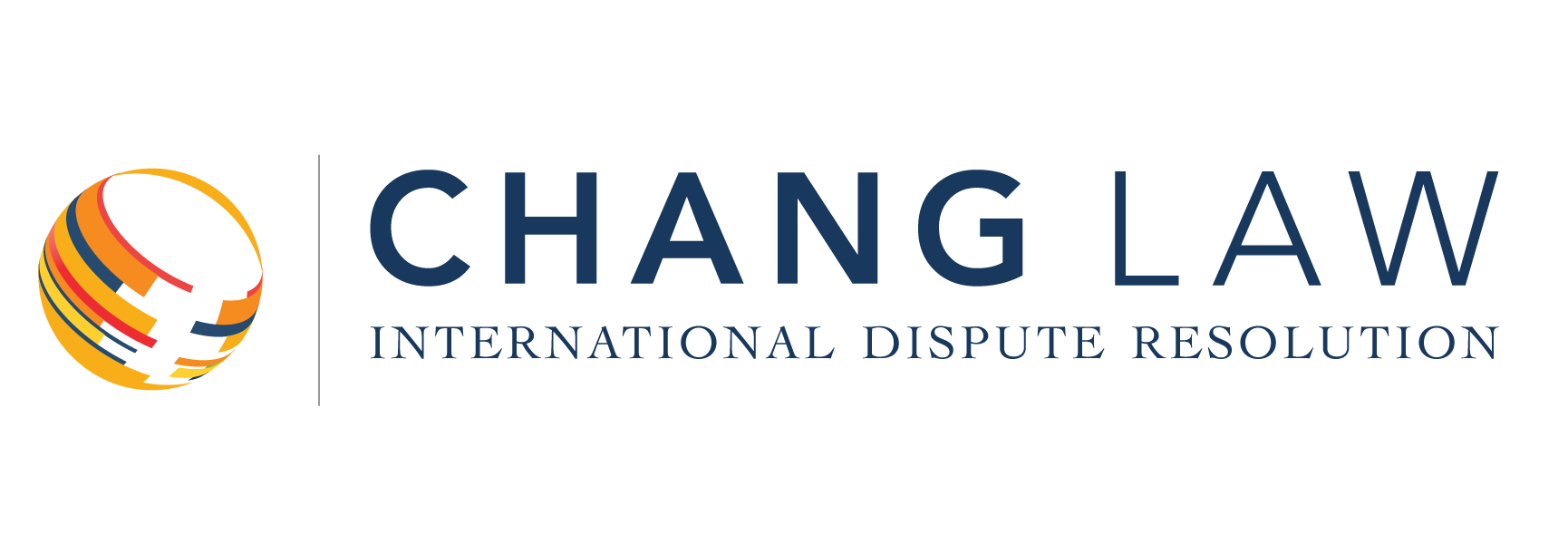
On 26 September 2018, the Supreme Court of California granted a petition to review a case to resolve the question: “Can private parties contractually agree to legal service of process by methods not expressly authorized by the Hague [Service] Convention?”
The issue arose in Rockefeller Tech. Inv. (Asia) VII v. Changzhou Sinotype Tech. Co. Ltd., 24 Cal. App. 5th 115 (Cal. Ct. App. 2018), where an American party–Rockefeller Technology Investment (Asia) VII (“Rockefeller Asia”)–sought to confirm its arbitration award and served the counterparty according to the method outlined in the arbitration clause of the parties’ Memorandum of Understanding (“MOU”). Changzhou Sinotype Tech. Co. Ltd. (“Sinotype”), the Chinese counterparty, challenged the validity of the MOU with Rockefeller Asia and argued that the service was defective because it did not conform with the Hague Service Convention (and China’s reservations to Article 10 of the Convention).
History of the Case
Rockefeller Asia and Sinotype were preparing a joint venture to create Chinese typographical fonts. The two companies signed a Memorandum of Understanding in 2008 to create a new company organized in California. The MOU had a dispute resolution provision which provided for arbitration in Los Angeles under the JAMS Arbitration Rules decided by a sole arbitrator. The MOU also outlined the notice method:
“The Parties shall provide notice in the English language to each other at the addresses set forth in the Agreement via Federal Express or similar courier, with copies via facsimile or email…”
“The Parties hereby submit to the jurisdiction of the Federal and State courts in California and consent to service of process in accord with the notice provisions above.” (emphasis added)
After the relationship deteriorated, Rockefeller Asia initiated an arbitration in accordance with the MOU, serving its demand for arbitration on Sinotype through FedEx along with an email copy. Sinotype’s chairman received the FedEx packages and emails but did not open them. Sinotype did not appear in the arbitration and the arbitrator issued a default award in Rockefeller’s favor for $414M.
In 2014, Rockefeller Asia moved to confirm the arbitration award in Los Angeles Superior Court. For the service of summons, Rockefeller Asia used the same method it had used for the arbitration (via FedEx and email) and submitted the receipts as its proof of service on Sinotype for the confirmation proceedings. Sinotype again did not appear, and the court confirmed the default award on 23 October 2014.
Two years later, in 2016, Sinotype moved to set aside the 2014 confirmation judgment. Judge Hammock of the Los Angeles Superior Court heard the case and refused to set aside the judgment, ruling that the arbitrator had found the MOU was a binding contract and that the notification provision within the MOU was a valid alternative to the service requirements of the Hague Convention.
On 1 June 2018, the California Court of Appeal reversed Judge Hammock’s decision, ruling that parties cannot contract around the Hague Service Convention. A copy of the opinion can be found, HERE.
Contracting around the Hague Service Convention
In reaching its decision, the California Court of Appeal took a strict interpretative approach. The Convention applies to “all cases, in civil or commercial matters, where there is occasion to transmit a judicial or extrajudicial document for service abroad.” Without any textual carve-out for alternatives (and with China specifically objecting to service by mail in Article 10 of the Convention), the Court of Appeal found no basis to honor a contractual agreement that bypasses the Convention.
The California Court of Appeal mentioned (then side-stepped) two cases that have recognized contractual deviations from the Hague Service Convention. These cases, Alfred E. Mann Living Trust v. ETIRC Aviation S.A.R.L., 910 N.Y.S. 2d 418 (N.Y. App. 2010) and Masimo Corp. v. Mindray DS USA Inc., 2013 WL 12131723 (C.D. Cal., Mar. 18, 2013) both honored the parties’ decisions to waive typical service requirements and agree to receive notice in ways other than those dictated by the Convention. In Alfred E. Mann, a Netherlands guarantor agreed to waive service and to receive notifications via email. Later, when the original debtor defaulted, the creditor filed a collection action against the Netherlands guarantor in New York. The Netherlands guarantor objected that the emails it had received did not conform with the Hague Service Convention. The New York Court of Appeals (the highest state court in New York) held that “[a]lthough the [Hague] Convention, including its service requirements, must be treated as the law of the land . . . we see no reason why the requirements of the Convention may not be waived by contract.” The Court noted that the Netherlands guarantor waived its service rights in the contract and that ignoring this express waiver “would allow people to unilaterally negate their clear and unambiguous written waivers of service by the simple expedient of leaving the country.”
In Masimo, a U.S. company sued a Chinese customer for patent infringement. The U.S. company brought a case in the U.S. District Court for the Central District of California and served copies of the complaint to the Chinese company by registered mail in accordance with their Purchasing and Licensing Agreement (“Agreement”). The Chinese party objected to the mailed service, arguing that the service was invalid because the Hague Service Convention does not allow service by mail on a Chinese party. The court disagreed with the Chinese defendant and held that the parties had contracted around FRCP 4 as well as the Hague Convention. The court supported its decision with a number of well-established cases where parties mutually agree to deviate from FRCP 4, choosing instead an alternative method of service (or waiver of service altogether). See Nat’l Equip. Rental, Ltd. v. Szukhent, 375 U.S. 311, 316 (1964) (“[P]arties to a contract may agree in advance to submit to the jurisdiction of a given court, to permit notice to be served by the opposing party, or even to waive notice altogether.”); Doctor’s Associates, Inc. v. Distajo, 107 F.3d 126, 136 (2d Cir. 1997) (holding that “the AAA [Arbitration] Rules . . . governed service of process” for the party’s suit to compel arbitration); Comprehensive Merch. Catalogs, Inc. v. Madison Sales Corp., 521 F.2d 1210, 1212 (7th Cir. 1975) (“It is well-settled that parties to a contract may agree . . . as to the manner and method of notice.”); Trump v. Dagostino, 2010 WL 3365342, (M.D. Fla. Aug. 24, 2010) (“[P]arties generally may agree in advance to a method of service not otherwise permitted by Rule 4.”).
The Masimo court also noted that other conventions, such as the Hague Convention on the Taking of Evidence Abroad (“Hague Evidence Convention”), are frequently waived. See Boss Mfg. Co. v. Hugo Boss AG, 1999 WL 20828, (S.D.N.Y. Jan. 13, 1999) (observing that multiple witnesses “waive[d] the applicability of the Hague [Evidence] Convention”); Image Linen Services, Inc. v. Ecolab, Inc., 5:09-CV-149-OC-10GRJ, 2011 WL 862226 (M.D. Fla. Mar. 10, 2011) (noting that a witness waived the “formalities of the Hague [Evidence] Convention”). The Masimo court concluded that parties may contract around the Hague Service Convention, as was the case when the U.S. and Chinese parties agreed to service by mail in their Agreement.
One case that the Court of Appeal in Sinotype did not address is Voltage Pictures, LLC v. Gulf Film, LLC, 2018 WL 2110937 (C.D. Cal. Apr. 17, 2018), handed down just months before the June 2018 Sinotype decision. Voltage Pictures, a U.S. company, entered into multiple distribution agreements with Gulf Film, a company based in the United Arab Emirates. Each distribution agreement provided for arbitration under the Independent Film & Television Alliance (“IFTA”) International Arbitration Rules and allowed for service in accordance with California law. The original arrangement was for Gulf Film to distribute Voltage’s movies in the Middle East, but a dispute arose that led Voltage to initiate an arbitration. The arbitration lasted several months and ended with a final award in favor of Voltage. Voltage sought to confirm its award in the federal district court located in Los Angeles, sending notice of its Motion for Confirmation to Gulf Film’s UAE office by first-class mail. Gulf Film sought to quash the service, arguing that the service failed to meet FRCP 4(f). The court denied the motion to quash because the IFTA Arbitration Rules explicitly state that its service methods also apply to the “any … process necessary to obtain confirmation of the Arbitrator’s award.” (IFTA Rule 12.5.) Thus, the court found that the parties agreed to “service of process [for the confirmation proceedings] in accordance with California law via IFTA Arbitration Rules, and [that Voltage Pictures] served [Gulf Film] by Registered International Mail, in compliance with CCP § 415.40.” The court thus recognized that a service method outlined in an arbitration agreement is a valid form of service for the ancillary suits in domestic courts. See also Doctor’s Associates, Inc. v. Distajo, 107 F.3d 126, 136 (2d. Cir. 1997).
The parties in Sinotype are arguably similarly situated with the parties in Alfred E. Mann, Masimo, and Voltage Pictures, where one party refuses to recognize the service method it had previously agreed to in its contract. Although the California Court of Appeal declined to follow this persuasive authority, the Supreme Court of California may well address this issue in its upcoming ruling. Indeed, the Court of Appeal’s decision has been criticized as potentially negatively impacting international arbitration. Judge Hammock presaged this in his Superior Court Opinion, which is worth quoting here:
“To allow parties to enter into a contract with one another and then proceed to unilaterally disregard provisions out of convenience, like the one at issue here, would allow parties to simply return to their respective countries in order to avoid any contractual obligations. As aptly noted by [Rockefeller Asia] . . . this would essentially result in anarchy and turn the entire international arbitration law on its head.”
It should also be noted that the provision in the Rockefeller Asia-Sinotype MOU follows standard practices in international arbitration. Most institutional rules allow for notice “by any means . . . that allows for a record of its transmission.” ICDR Arbitration Rules, Art. 10(1); See also LCIA Arbitration Rules (2014), Art. 4(1)-(3) (allowing notice by registered mail, courier, fax, or email); ICC Arbitration Rules, Art. 3(2) (allowing the ICC Secretariat, who notifies parties of the Request for Arbitration, to communicate with parties through registered mail, courier, or email to the last address of the party); SIAC Arbitration Rules, Art. 2.1 (allowing notice by registered mail, courier, fax, or email); World Intellectual Property Organization (WIPO) Arbitration Rules, Art. 4 (allowing certified mail).
In addressing the Hague Convention issue, the California Supreme Court may also address whether pre-dispute agreements for service between international business partners should be honored at all stages of the dispute: before (when notifying the other party of the request for arbitration), during (throughout the arbitral proceedings) and after (when notifying the party of the award’s confirmation and/or enforcement proceedings).
If you wish to receive email updates about this case as it is heard before the California Supreme Court, add your email to the California Supreme Court’s website, HERE.
